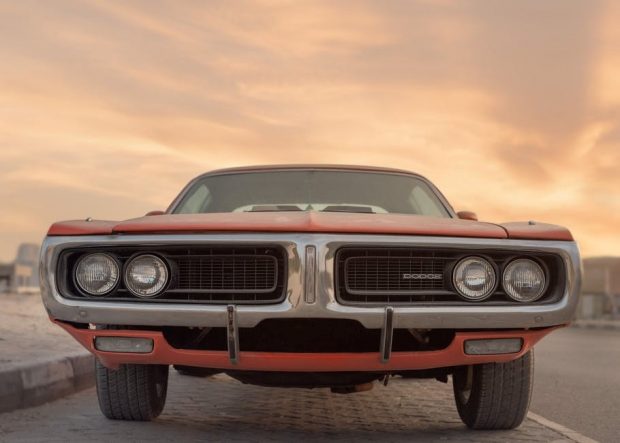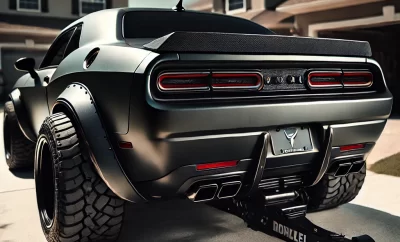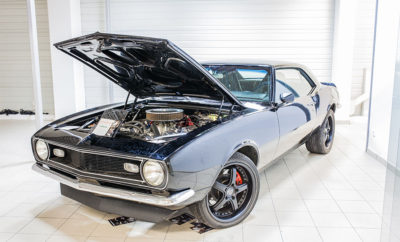Best Muscle Cars
How Often Do You Need a Tune-Up for Your Muscle Car?

Sometimes your muscle car may display certain symptoms and you may be wondering ‘how often do you need a tune-up?’ Here are your answers.
The enticing power. The captivating exhaust note. The oh-so-aggressive looks.
There are probably a hundred and one different things that you like about your muscle car. Consequently, there’s probably a lot that you would do to ensure that your vehicle stays in great shape.
One of the best ways to ensure that your muscle car stays in tip-top condition is to get a tune-up frequently. In this article, we’ll take a look at the question of how often do you need a tune-up so that you are better informed as to whether it’s time to look for a tune-up for your muscle car.
How Often Do You Need a Tune-Up on a Muscle Car?
The duration between specialist-performed maintenance checks will depend on the specific vehicle that you have bought. The maintenance schedule should be visible in the owner’s manual that the manufacturer will typically put in the glovebox.
As a general rule of thumb, however, you can expect to bring your car in every 25,000 miles or two years for a general check-up.
Of course, there are several factors that may make you want to deviate from the manufacturer-recommended maintenance schedule. The first such factor could be if you regularly track the car and run it at high RPMs. The additional stress and wear and tear on the engine necessitate more frequent maintenance checks.
In addition, if you begin to hear any weird noises or vibrations or see a check engine light pop up, then the answer to the question of “does my muscle car need a tune-up” is a definite yes.
If you want to keep your car running in great shape, there are several things that you can do beyond this check-up. We’ll take some time to go through some of the most common maintenance tasks that you need to do on your muscle car.
Change Fluids Regularly
The first and most basic task that you can do to maintain your vehicle is one that you’ve probably already heard about: changing your oil. Your oil is the only lubricant that separates your pistons that are spinning at thousands of revolutions every minute from the walls of your engine.
Without that lubricant being in good condition, you could very easily blow up your engine.
However, it’s also important to remember the other fluids in your vehicle. These fluids include the transmission fluid, power steering fluid, and brake fluid. All of these fluids need to be changed regularly as well, though not as regularly as the engine oil.
Replace or Clean the Air Filter
Another basic maintenance task that you can do on your vehicle is to change the air filter. The air filter is what catches any debris in the air that is being pumped into your engine.
If debris gets into your engine, then that could mean that your engine is damaged beyond repair. But even if the air that gets in is just dirty, full of suspended dust particles and grime, then you could easily see a loss of fuel economy.
Replacing the air filter is typically a very easy job. Manufacturers make it that way because of how frequent of a task this is.
Change the Battery
Just like practically everything else in the world these days, your vehicle needs electricity to run. If you’ve been noticing your lights flickering, your indicators failing, or your radio failing to turn on, then you’re probably witnessing a few of the signs you need a new car battery.
You can use a basic voltmeter from your local auto parts that cost just a few bucks to check the voltage carried in the battery. If it is less than the standard 14 volts, then chances are that its time for you to get a new battery.
Replace Worn Tires
Your tires are your vehicle’s only connection to the road. Consequently, it makes sense that you are very careful about the condition that your rubber is in.
If you love to exercise your car’s power in the form of burnouts and drifting, then there’s no doubt that you’re probably going to wear out your tires pretty quickly. Be sure to replace your tires regularly.
Driving on worn tires can cause you to lose traction on the road. This could result in an accident if you’re not careful.
Recharge the Air Conditioner
There’s nothing worse than getting into your car during the heat of a particularly warm summer day and turning on your air conditioner only to find that lukewarm air blows out. Frustrated, you resign yourself to driving all the way home with your windows down. And you’re regretting that you didn’t bring an extra bottle of water with you.
Avoid this frustrating situation by ensuring that the air conditioner gets recharged with fresh refrigerant whenever the A/C starts to lose its ice-cold temperatures. This job will typically have to be handled by a service center, as you need a permit to be able to produce refrigerant because of its toxicity to the environment.
Replace the Timing Belt
Last but not least, one of the most important maintenance tasks for your car is replacing the timing belt as often as the manufacturer recommends. The timing belt is the belt that runs the opening and closing of the valves in your engine. These valves let fuel and air into your engine.
If your engine is out of time, then the best-case scenario is that you have a rough-running engine. The worst-case scenario, however, is that the messed-up timing causes a piston head to slam into a valve, bending the valve and causing extremely expensive (and sometimes irreparable) damage to the engine.
Get a service station to take care of this job if your timing belt is due for a change. Got skills? You can order a timing belt online from https://www.discountautoparts.com and install it by yourself. If everything works out well, you will have a smooth-running car and a lot of money saved in your pocket.
Keep Your Muscle Car in Great Shape
There you have it. Now that you know the answers to the questions of how often do you need a tune-up and how to maintain your muscle car, you are now far better equipped to keep that prized vehicle in good shape.
For more auto advice, be sure to check out the rest of the website!









0 comments